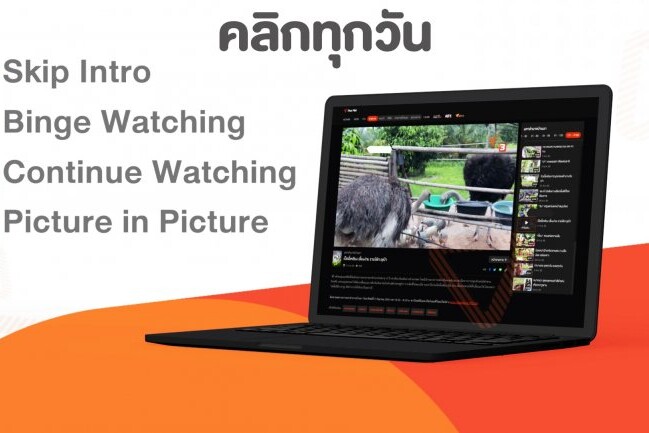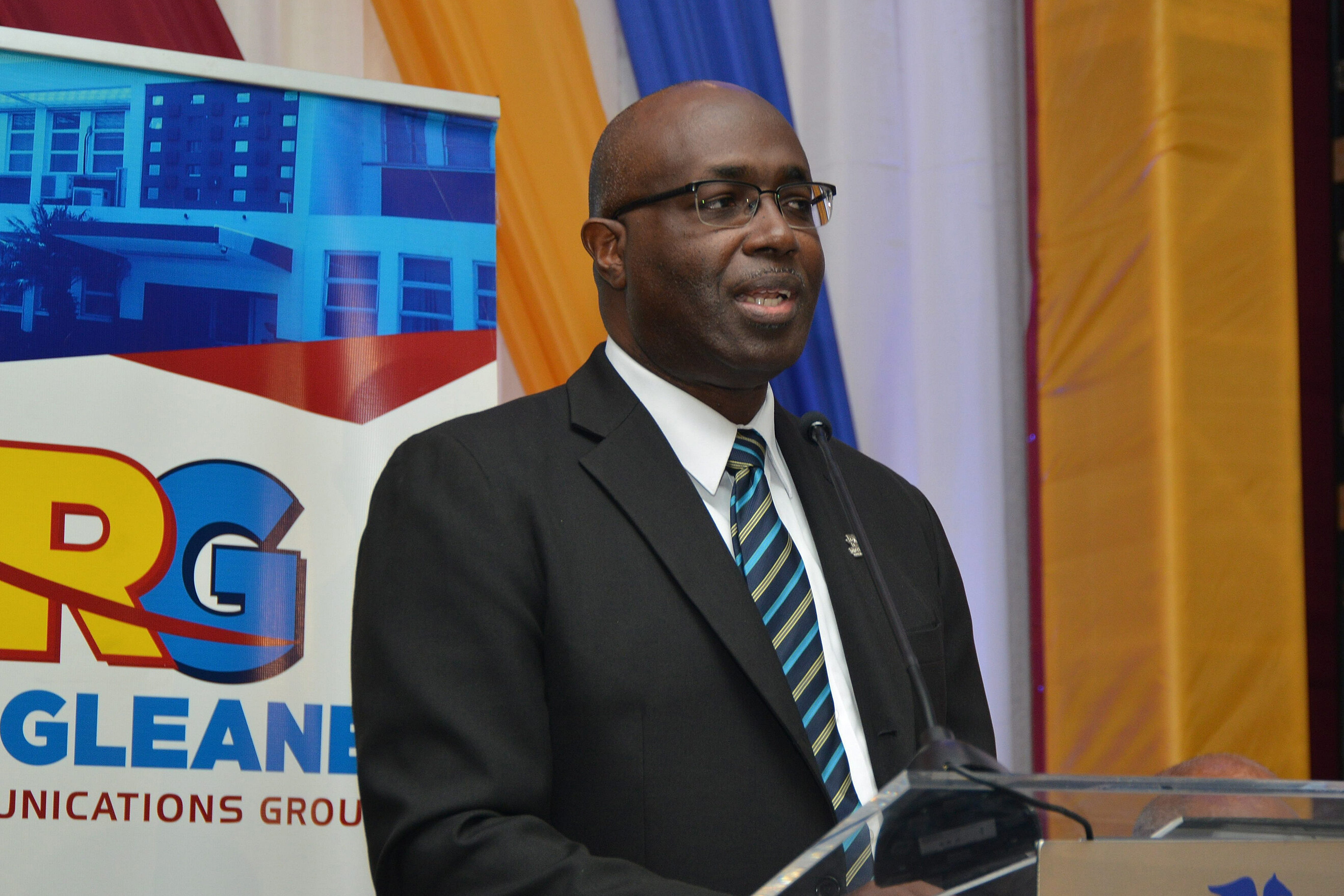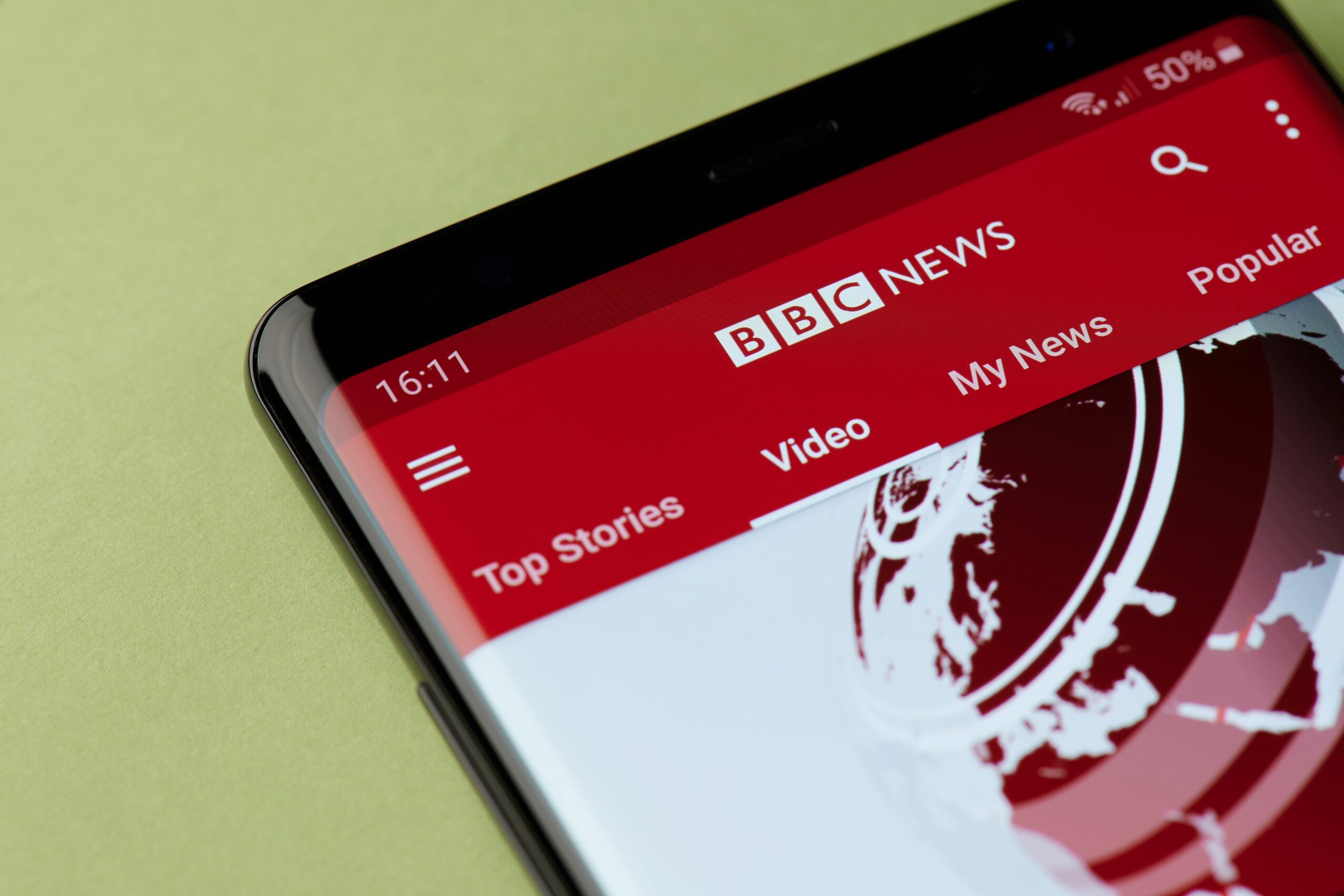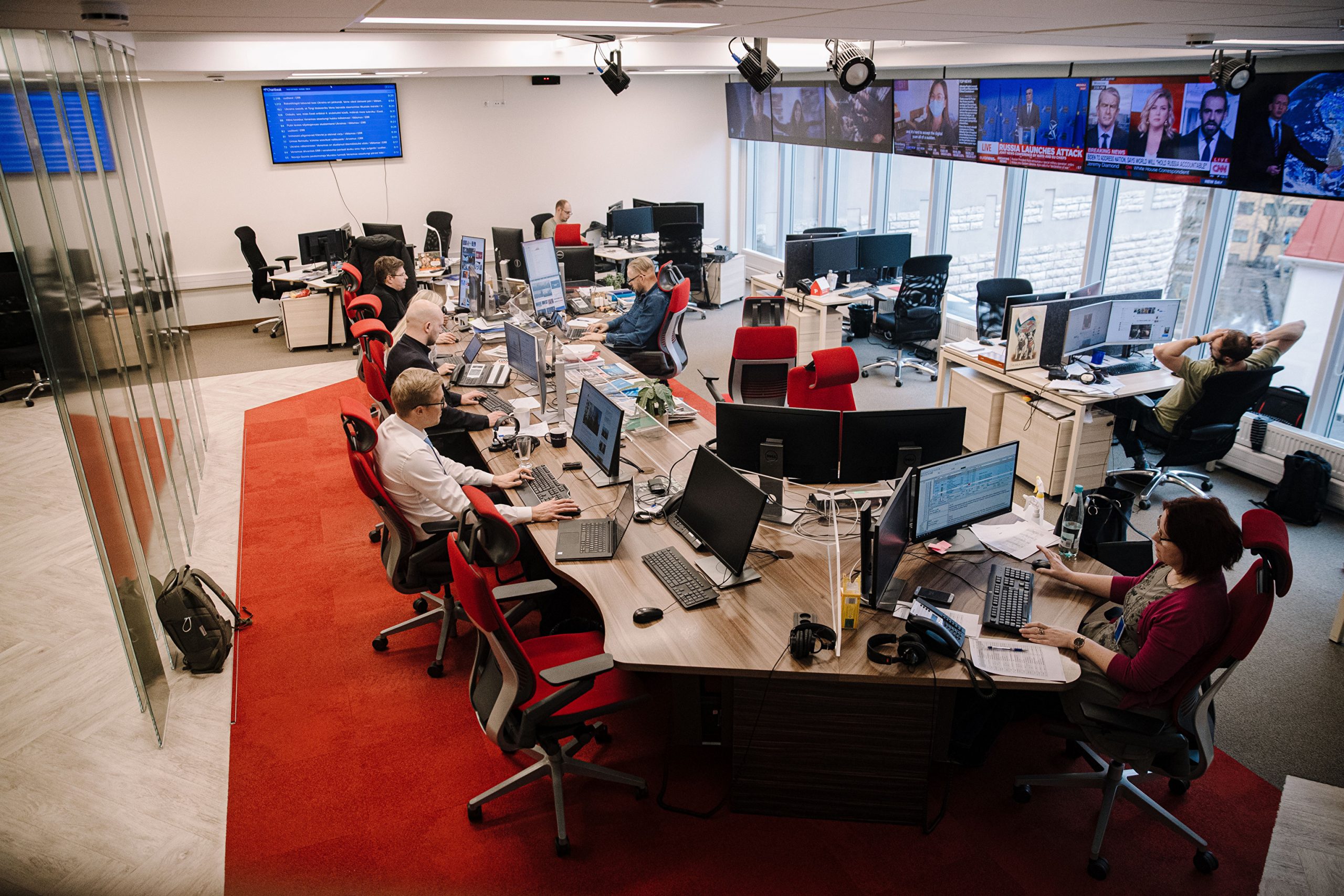PRESS RELEASE
New look for Thai PBS’ website: “Digital First”
6 January 2023
Thailand’s public broadcaster has adapted its website and other offerings to be more digitally-focused, to ensure it fits in with changing consumer habits, while continuing to promote its public service remit.
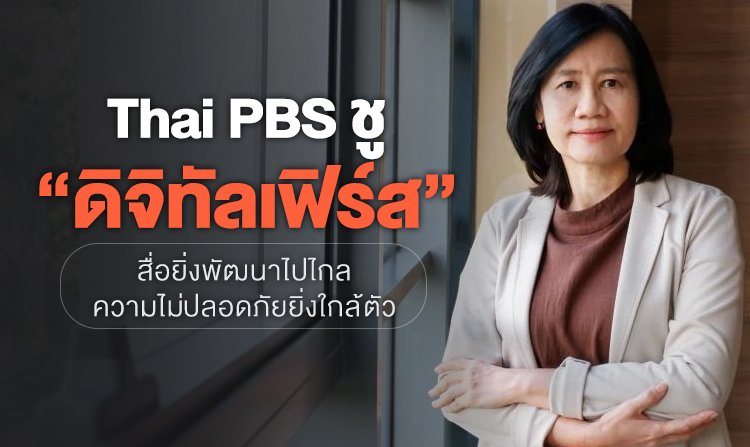
This press release was originally published by Thai PBS. It has been edited for clarity.
In a digital society, consumer behaviour changes rapidly, and [is] affecting the choice to watch programme content through a variety of new online platforms. Of course, the spread of COVID-19 is one of the key catalysts for this change.
But in addition, there is another interesting point, namely, the media viewing behaviour of the new population who will soon become a large population of Thailand, such as Gen Z, who have grown up with full-fledged digital technology. At the same time, the Baby Boomer group or the elderly group are open-minded to new technologies to communicate with their families, and receive more news and entertainment information. It is necessary for media to develop themselves and compete to attract as many consumers as possible to the content on their platforms.
Read more: Developing a website with public service at its core
In the midst of the media competition in the digital age, “Thai PBS” is a public media that allows everyone to participate equally at all levels. [We must] continue to develop and upgrade the service continuously. Recently, the service function has been developed, including designing the display for easier use and restructuring the Thai PBS website map under the concept of “Thai PBS NOW, click every day, keep up with all events”, supporting accessibility and changing the media consumption behaviour of users who are more diverse, so that all groups of users have equal access to services on the website including linking 10 categories of content from quality websites in the Thai PBS network to the main website. It is a content hub for users who can access comprehensive content.
New look of Thai PBS website: Transform from “TV First” to “Digital First”
Assoc. Prof. Dr. Wilasinee Phiphitkul, Director of the Public Broadcasting Service of Thailand (Thai PBS), shares her views on the behaviour of people receiving media. “There has been a clear change in consumption in the post-COVID-19 era, that is, the new generation like Gen Z will definitely not come back to watch information and entertainment through television or TV. In addition, there are currently a variety of channels to choose from, as well as the lifestyle of consumers who live more at home, which stay at home more does not mean consumers will watch content and entertainment via TV, but may be watching from multiple platforms at the same time.
“[Thai PBS] is not just a content or a platform. But it must act as an institution that helps build skills for people in society to be aware of the media and together with checking fake news, creating active citizenship, which we actually do”
– Associate Professor Dr. Wilasinee Phiphitkul, Director of Thai PBS
“Therefore, one must understand such behaviour that consumers may not turn on the TV to watch that programme, but may turn on to be friends. Then watch various content on other devices such as mobile phones, computers and tablets.
“Media design from now on probably doesn’t see that it has to be TV-first or broadcast on TV first, then take it out to other online media, but you have to look at it as digital first. We try to embed this thinking into the people in the Thai PBS organisation that is not TV first but it must be digital-first, meaning what kind of story will be told that consumers can watch on all digital devices? Or one piece of news may be sent at once 3 ways to be presented through different types of devices without having to wait for it to go out on screen first and then cut it online. It’s considered a fairly strong change, but it’s something that needs to be changed immediately. With COVID as a catalyst, the Thai PBS website has transformed itself into a better and more quality platform for all groups of people.”
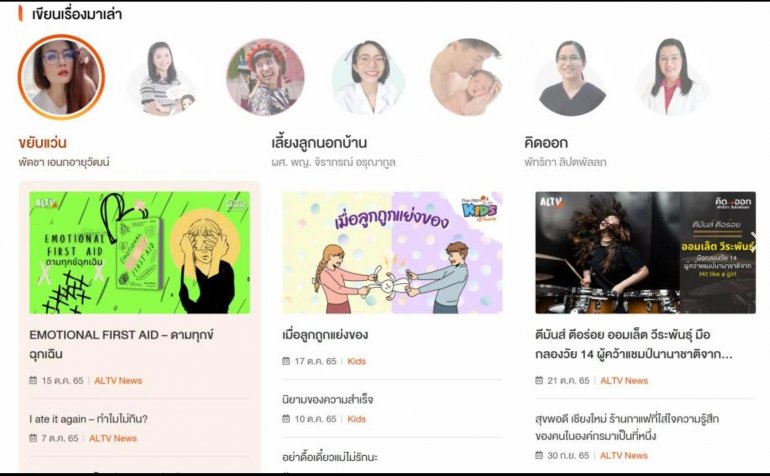
Thai PBS reinforces its position as “public media” for everyone
Assoc. Prof. Dr. Wilasinee said that the modification of the Thai PBS website including all types of online media of Thai PBS operates under the principle of being a public media by being a space that is open for everyone to easily access and is user friendly, adapting to various changes and consumer behaviour in the digital age. It must be a space for all generations, especially the new generation like Gen Z.
Read more: “Online is first”: How public media can use the digital age to become a market leader (Insight)
It Includes the introduction of technology and convenient functions as well as being a gateway (Single Gateway) portfolio of Thai PBS by linking quality content from 10 sub-websites in the Thai PBS network to be included on the Thai PBS website, complete in one place, including arranging website pages according to topic groups to meet consumer behaviour that requires individuality (personalised).
Thai PBS still adheres to the principle of focusing on safe content. Whether it’s a traditional TV screen or various platforms, the strengths that are the identity of Thai PBS are reliable media. The content is accurate, appropriate, safe and well-rounded. It also takes into account the content that is relevant to the community, locality, various civil society groups and perspectives of various groups.
“Media design from now on probably doesn’t see that it has to be TV-first then take it out to other online media, but you have to look at it as digital first. … It’s considered a fairly strong change, but it’s something that needs to be changed immediately”
– Dr. Wilasinee Phiphitkul
It believes that the principle of public media is giving everyone the opportunity to listen to each other, using common intelligence to look at social situations not going either way, or putting everyone in a situation where people will hear the same opinion, blocking different information and listening to the same story until he believed that it was the idea of most people.
But Thai PBS will be a space that encourages people to open their minds and listen to each other rationally. And do not use hate speech in society, including the Thai PBS online space, [which] must allow children and youth to use it as a learning space appropriately and interactively.
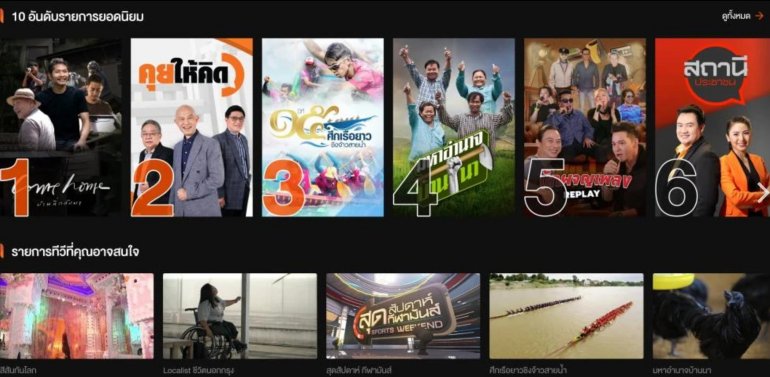
Adhere to the principle of “ethics”, a mechanism for regulating the presentation of information
In the midst of intense competition and the direction of online media, Prof. Dr. Wilasinee said the position of Thai PBS news presentation is already strong. Because no matter what platform, Thai PBS adheres to ethical principles as a strong regulator: be careful when presenting sensitive issues; verify the accuracy of information at all times. Thai PBS is in the process of developing a fact-checking mechanism, which is the process of verifying the source of news information. It is expected that in the first quarter of 2023, Thai PBS will become a partner of the International Fact-Checking Network (IFCN), which will raise the standard of Thai PBS as well.
“Compete to build wisdom and strength for the citizens of Thai society, rather than ratings, which is not the main approach of public media like Thai PBS”
– Dr. Wilasinee Phiphitkul
“Towards Digital Transformation Thai PBS must enable online media to create engagement with viewers or media users, be it Gen Z, Gen Y, or even the elderly who use online media. We have to adapt. We must learn the behaviour and interests of different groups of people, which we try to develop a data system to analyse the real-time behaviour of Thai people. And there is information that is inside the research, tracking the backyard storage system on the Thai PBS website about how people who come to view or use media behave. This will allow us to design media that creates engagement with different groups of people appropriately.
“In addition, the point of difference of Thai PBS especially is online media. We try to provide a platform for community and citizen content to communicate. Let’s brainstorm to solve big problems in society together, with an important goal of helping to mobilise wisdom in society. I think this is the big point of online space in Thai PBS style. Compete to build wisdom and strength for the citizens of Thai society, rather than ratings, which is not the main approach of public media like Thai PBS.”
Increase roles to enhance media literacy skills Raise the level of Thai nationality streaming
As for the direction of the media landscape in the future, Assoc. Prof. Dr. Wilasinee said that TV media will not die from Thai society, especially when there are still people who watch information and entertainment through TV. But TV media has to change its role from being a general content platform. It has to create content that is unique and more special. There will be more learning across media. Nowadays, traditional media makers such as TV media have learned a lot of techniques from online media, such as digital marketing.
Overall, it is expected that content producing media will have to focus more on the global market that is clearly seen being on Netflix or major world-class streaming. Thai PBS is ready to join hands with entrepreneurs to promote Thailand to have streaming as a national platform and strengthen Thai streaming.
“The more online media develops, the more the insecurity of using the media has also increased. Therefore, Thai PBS as a public media organisation [is] for the people. So it’s not just a content or a platform. But it must act as an institution that helps build skills for people in society to be aware of the media and together with checking fake news, creating active citizenship, which we actually do. Only in the past do we see ourselves as producers and creative media. The weight of the job is quite a lot of being a manufacturer.”
“From now on, the direction of Thai PBS will not be just a manufacturer but must be the one who helps build strength and elevate media users and aims to go beyond having multiple platforms. Transform yourself from being a 100% manufacturer [to] be supportive of working with others and more importantly moving towards a content provider hub in Thailand that is ready to support working with great content creators,” said the director of Thai PBS.
The media landscape in the digital age is both an opportunity and a challenge for “Thai PBS” as a public media organisation of the people that continues to develop. To reinforce the goal of filling the gaps to cover all audience groups by presenting accurate news, ready to be a space to present content that will be a common solution for society and drive Thai society towards sustainability…
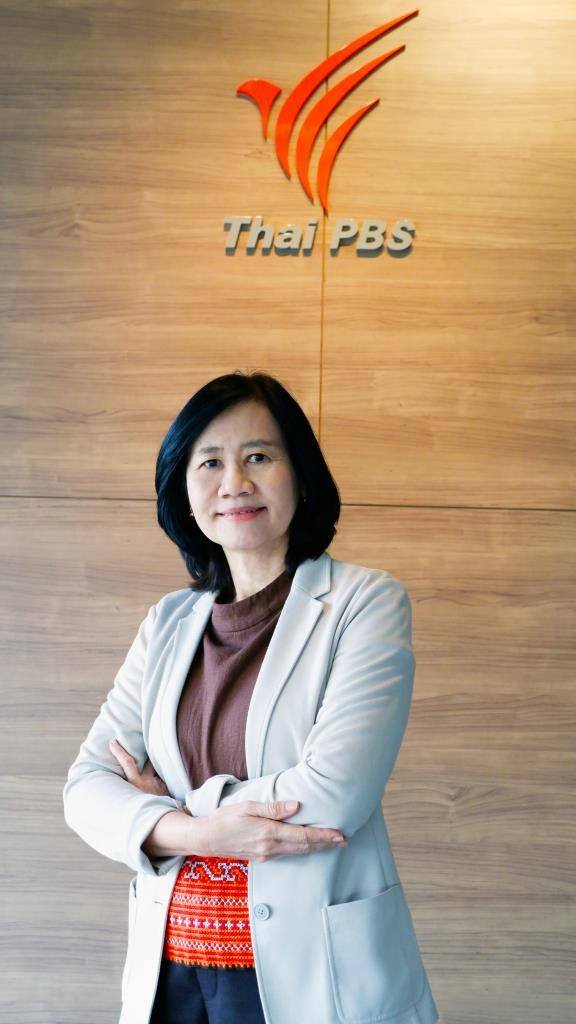
Related Posts
8th November 2022
Developing a website with public service at its core
Thai PBS launched a new website on…
19th May 2022
“Online is first”: how ERR uses the digital sphere to become a market leader
Erik Roose, the ERR Board Chair, argues…
